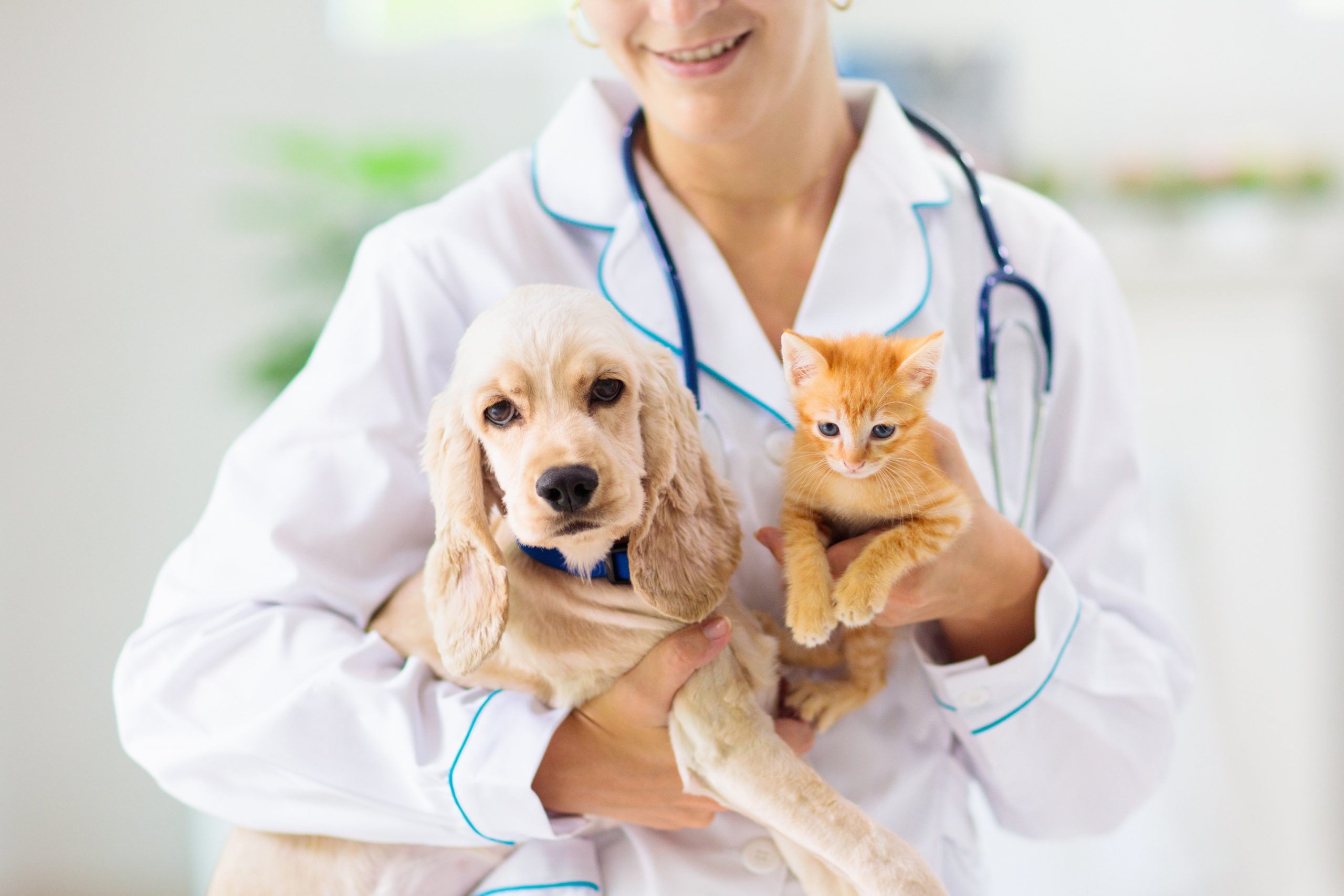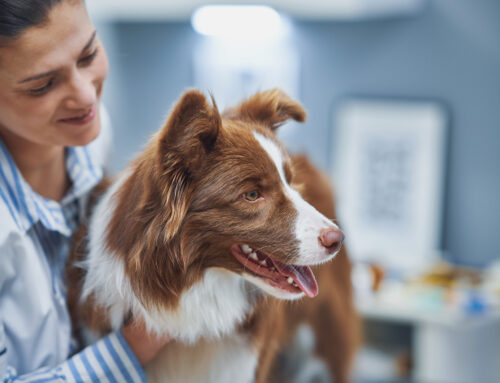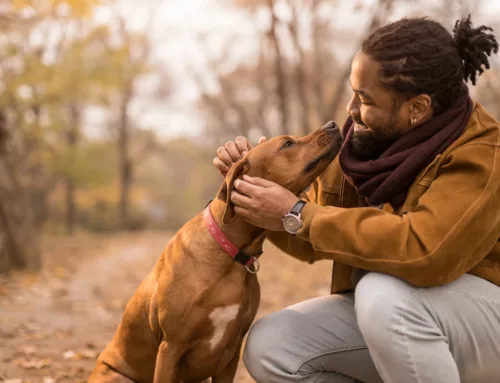A household pet will very quickly become a valued member of the family, with the health of your companion something to closely monitor and regularly look out for. Animals are more susceptible to some common diseases and afflictions than humans are, meaning that regular check-ups with a vet are recommended. Whether you’ve recently brought home a rabbit to add to your growing family, or you’ve rehomed a dog or stray cat in your property, their wellbeing can also be ensured by checking which vaccines they require, as well as the regularity with which they must be vaccinated.
As well as preventing a range of harmful conditions, vaccinating your pet will provide many other benefits to them as well, which will be detailed throughout the below article. Looking to vaccinate your pet but don’t know where to start or who to discuss it with? Bay Vets are the 24/7 veterinary professionals to trust. Any time of the day we will reliably help you out with your pet-related concerns, providing guidance on everything from routine injections, to urgent care requirements.
The Importance Of Animal Vaccination
Vaccines are an essential for many common pets, regardless of the animal you decide to introduce into your household. Not only do these routine injections protect your companion against harm from diseases such as respiratory tract infections, but they can also protect humans against common transmissible issues such as rabies. Fighting off an array of frequently contracted diseases, vaccine injections contain weak pathogens, which partially expose a pet to certain organisms in a harmless manner. Triggering their body to produce antibodies when provoked, the animal in question will then be able to fight off disease-causing organisms which enter their body.
While a pet in the early stages of their life will likely need a selection of different vaccines to set them up for adventure, your animal will also require booster vaccines at regular intervals, as the protection offered by initial injections will lessen over time. As each common household pet is different when it comes to vaccine requirements, the following sections will provide you with specific information for cats, dogs, rabbits and other popular domestic animals. For general pet healthcare advice, please refer to the section of our website or contact a member of the team.
Cat And Kitten Vaccinations
Many pet owners allow their cats to roam free during daytime hours, meaning that they could be coming into contact with all manner of germs, diseases and potentially injurious situations simply by exploring the nearby vicinity. Though a domestic cat usually won’t travel further than a one mile radius from their home, giving your feline friend the opportunity to navigate their surroundings without the correct vaccines has the potential to backfire. Even if your cat remains within the home, there are many diseases which a cat could unfortunately catch from visiting humans or other means.
When Should I Get My Cat Vaccinated?
Vaccinating a kitten at a vet surgery is one of the most important things to do over the first few weeks in your role as an owner. Two sets of vaccinations will usually be required initially to get them started, with the first set at nine weeks old and a second set after three months. Kittens and adult cats will usually need additional vaccinations once a year following this, with a vaccination record usually provided to you for safekeeping and to remain updated when their next annual injection is needed.
Which Vaccinations Are Required?
When registering with Bay Vets, we will stay on top of your kitten’s vaccine needs, with a friendly veterinary practitioner able to provide protection against such common issues as Cat flu, feline infectious enteritis and leukaemia virus. During a vaccination appointment, you can expect more than just a quick injection for your cat, as a vet will be able to keep track of your feline’s progress, weight and any significant medical issues which may have arisen since your last appointment.
Extra Information
When taking in a stray or rescue cat, you should be careful to ensure that their vaccination status is up to date. Any doubts? Arrange an appointment with us.
Dog Vaccinations At A Friendly Vet Surgery
Though dogs aren’t given free-reign to roam the streets in the same way as their feline counterparts, they can still pick up all sorts of nasty diseases and issues from their time in the garden, walks around the block or from dirt and germs found in the house. Dogs are naturally curious creatures, and can easily stick their nose or tongue somewhere it shouldn’t be while they’re investigating surroundings, and with canines able to pick up diseases from sources as innocent as infected drinking water, you should endeavour to always stay up to date on injections.
When Should I Get My Dog Vaccinated?
When your dog is a puppy, they will be particularly vulnerable to serious diseases, making it vital that they receive their initial three vaccinations with regular updates to heighten immunity. At the 8 week, 12 week and 16 week mark, a puppy should receive the initial 3 doses, while annual vaccinations will ensure the effectiveness of initial doses remains. Older dogs will need regular boosters, with their immune system weakening as a result of ageing.
Which Vaccinations Are Required?
The most prominent canine diseases to prevent with vaccine doses are Leptospirosis, Infectious Canine Hepatitis, Canine Distemper Virus and Canine Parvovirus. Many of these harmful long-term illnesses can be contracted from everyday activities such as interacting with another dog’s mess during a walk, touching another dog’s saliva or even via the urine of other dogs which has been sprayed on surfaces, and can linger for a long time. Initial vaccines should protect against these worrying issues, with booster doses strengthening the canine immune system.
Extra Information
Puppies and older dogs can be nervous when it comes to a vet visit, so bringing along their favourite blanket, squeaky chew toy or collection of treats can give them a sense of security during the visit and soothe any doubts.
Other Common Pets
While vaccines aren’t as common for household birds, reptiles and small mammals who are confined to hutches or cages in the garden, there are precautions which can be taken so that your loveable pets are adequately protected, as well as some optional vaccines. If you have any concerns about the health or welfare of your animal, please consult our symptom guide page.
When Should I Get My Pet Vaccinated?
Though small caged animals similar to and including hamsters don’t require vaccinations, at minimum they should be given annual physical examinations at a veterinary practice, with faecal tests to check for parasites. Rabbits on the other hand are eligible for annual vaccinations, alongside regular health checks being recommended. Furthermore parrots and other caged birds do not require a vaccination by law, but the option of one is reassuring news for those wanting to safeguard their bird.
Which Vaccinations Are Required?
The only widely available injection administered to caged household birds is the Polyomavirus vaccination, which protects against the Polyoma Virus. Though many parrots, budgies and other caged birds are not regularly given this vaccine, the virus can affect birds quickly, with very little indication of infection and fatal repercussions. Unvaccinated rabbits on the other hand are susceptible to both Myxomatosis and Rabbit Haemorrhagic Disease.
Extra Information
We are able to give routine checkups and vaccinations to a wide range of pets and domestic animals, with exotic breeds and species all accounted for. If you have any queries about the animals we care for, contact us via email on info@bayvets.co.uk.
Bay Vets: Cat Vaccinations, Puppy Vaccinations, And Essential Protection For Pets
Four branches across Lancashire and South Cumbria mean that we are able to reliably assist animal lovers across the region, while all of our surgeries have achieved accreditation to the Royal College of Veterinary Surgeons practice standards scheme. Having a trustworthy local veterinary practice to call upon will give you peace of mind that your pet is in the safest hands, and because we use all our own staff for our out of hours cover, you are guaranteed consistency of care when you choose Bay Vets.
Overseeing everything from general health checks, vaccinations and major surgical procedures, our expertise is unmatched locally, and we are recognised as the ideal practice for difficult or complicated pet health problems. Especially useful is our 24/7 emergency service, which is available for all registered pets. Should you need emergency advice or an appointment to see the vet once our surgeries are closed, there is always someone to help your furry friend. Any questions about pricing, registering or kitten vaccination consultations? Call the team on 01524 32696.





